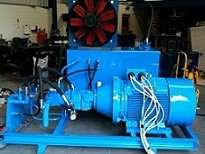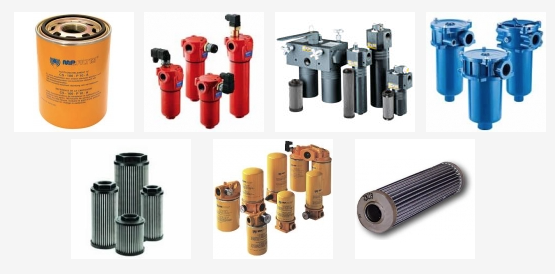Unplanned downtime disrupts business operations. Above all, effective oil analysis plays a vital role in looking after your machinery.
With 70 to 80 percent of all hydraulic failures being down to fluid contamination, it’s not exactly rocket science to say that ensuring regular, effective oil analysis should be high on the agenda.
 Hydraulic component contamination is categorised in three ways: gaseous, liquid or solid. Gaseous contamination can damage a hydraulic system’s lubricating properties. Subsequently this creates wear and increases the chances of other types of contamination. Liquid contamination, on the other hand, not only alters the capabilities of the lubricating properties, but also causes rust. Finally, solid contamination can cause valve blockages, substantial pump damage and blown seals and gaskets. In conclusion, all of these causes are completely avoidable.
Hydraulic component contamination is categorised in three ways: gaseous, liquid or solid. Gaseous contamination can damage a hydraulic system’s lubricating properties. Subsequently this creates wear and increases the chances of other types of contamination. Liquid contamination, on the other hand, not only alters the capabilities of the lubricating properties, but also causes rust. Finally, solid contamination can cause valve blockages, substantial pump damage and blown seals and gaskets. In conclusion, all of these causes are completely avoidable.
Effective oil analysis – ten ways to keep your oil clean:
1. Monitor
Hydraulic fluid should be monitored routinely and sampled on a quarterly basis.
2. Identify
Identify what sort of contaminant may be present (solid, liquid or gas) to ensure that the right kind of analysis in undertaken.
3. Find the source
By identifying the source of the contamination, preventative action can be taken. This may include contamination as a consequence of the equipment manufacturing process, air borne contamination or contamination produced as a result of the equipment in operation.
4. Neutralise
Offset the causes, and minimise the consequences of contamination either through: oil transfusion, installing extra air filters and replacing worn or damaged components.
5. Benchmark
All oil analysis codes are based off a code: ISO 4406. The relevant benchmark depends on the application in question.
6. Filter
Using hydraulic filters and filtration equipment can, in many cases, stop oil contamination. Determining flow rates, viscosity and pressure are necessary to finding the right filtering system. As a leading hydraulic filter supplier we have widespread, competitive access to both leading and niche hydraulic filter manufacturers from around the world. Some of the hydraulic filter manufacturers and brands that we can supply include: Argo Hytos, Eaton Vickers, Hydac, MP Filtri and Parker Hannifin hydraulic filters. Our technical team will be able to determine which filtration equipment is most suitable for your application.

7. Analyse
In order for oil analysis to be reliable, an in-depth inspection will need to be carried out. This may be in a laboratory environment through microscopic particle count and gravimetric testing, or through a mobile particle counter installed on the machine.
8. Predict
Recording results will allow you to spot trends and identify possible future risks. This is hugely important to lessen unexpected machinery downtime and schedule future inspections in good time.
9. Prevent
To help prevent contamination:
- Always make sure oil is filtered;
- Change oil filters every 12 weeks;
- Take oil samples every 12 weeks to check cleanliness level;
- Install air breathers to reduce contamination.
10. Invest
There is, of course a cost involved in ensuring effective oil analysis, but it is nothing compared to the cost of a replacement pump or even a complete system, lost production and goodwill.
Our team have a wealth of diverse market experience that you can draw upon in hydraulic system design, maintenance and component supply. How can we help?





